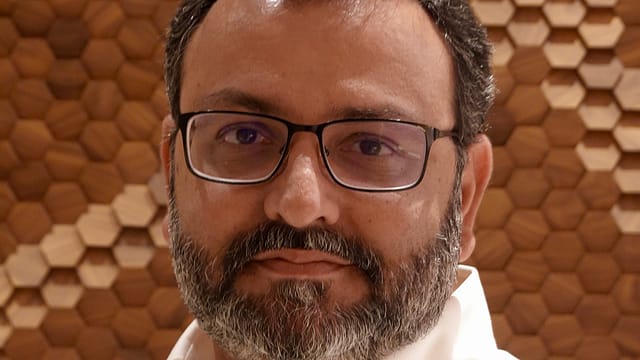Cyrus Mistry gets back to business
ADVERTISEMENT

Exactly two years after his removal as chairman of the salt-to-software Tata group, under acrimonious circumstances, Cyrus Mistry announced his next innings as an entrepreneur.
On Wednesday, Mistry, 52, announced the formation of Mistry Ventures LLP, “established with an intention to provide strategic insights and advice to businesses, incubate new ventures, and provide seed, early stage and growth capital to startups in India and globally,” through a statement.
Mistry Ventures has roped in Ashish Iyer, former senior partner and global leader, strategy practice at Boston Consulting Group, to lead the firm.
“The intent to deliver profit with social impact will be embedded in each of the ventures we promote or partner with,” Mistry said. “By interpreting some of the major global and local trends and understanding their impact on industries and companies, we will incubate new businesses, forge partnerships, and make investments across sectors. Mistry Ventures will focus on providing mentorship and infusing unique capability sets to help startups craft the appropriate business experiments needed to validate, scale, and bring products and services faster to market.”
In a sudden move that took India Inc. by surprise and led to one of the most bitter boardroom struggles witnessed by an Indian business house, Mistry was sacked as the chairman of Tata Sons, the flagship holding firm of the $132 billion business group, on October 24, 2016.
The stated reason for his dismissal was an alleged “trust deficit” and attempt to concentrate power in his own hands. Those facing off against each other included Mistry, and his senior leadership team on one side; and Tata Sons’main shareholder, the Tata Trusts and their trustees led by former Tata Sons chairman Ratan Tata and managing trustee R Venkataramanan.
Mistry, for his part, alleged various instances of corporate governance lapses and bad decision-making by his predecessors that purportedly led to value erosion for the group, as well as an alleged attempt by Ratan Tata to interfere in operational matters of the group even after stepping down as executive chairman. In a written communication issued by Mistry soon after his removal, which is now famously referred to as the ‘letter bomb’, Mistry outlined various examples of the alleged wrongs that he sought to right after taking over as chairman and also called himself a “lame duck chairman,” alluding to how his hands were tied owing to the organisational structure of the House of Tata.
Mistry is the son of Pallonji Mistry, whose family is the single largest shareholder in Tata Sons with an 18.4% stake. He was identified to be Ratan Tata’s successor by a selection committee, of which Tata himself was a part, in 2011. Mistry assumed the top job at Bombay House, the group’s iconic headquarters in South Mumbai in 2013. To enable his ascendancy to becoming Tata group chairman, Mistry had relinquished day-to-day operational control of the Shapoorji Pallonji Group, his family business that has interests ranging from engineering and construction to real estate, in favour of his brother Shapoor Mistry.
Mistry was clear that, upon his return to the family business after his departure from the Tata group, he could not ask his brother to vacate the role that was handed to the latter. He was clear that his next entrepreneurial pursuit had to be something of his own making. But before that Mistry wanted to take time and focus his energy on pursuing a legal battle against the Tata group—including the Tata Trusts and their trustees—on grounds of mismanagement and oppression of minority shareholders. Mistry has maintained that the legal recourse wasn’t intended to reinstate him as Tata group chairman, but to ensure greater transparency and accountability at one of India’s largest and most iconic business institutions.
Indeed, over the past couple of years, Mistry has been at the forefront of this legal battle, directly overseeing its progress and strategy. However, Mistry’s suit didn’t meet with much success in the Mumbai bench of the National Company Law Tribunal, and an appeal with the National Company Law Appellate Tribunal is now pending.
With the facts of the case and legal arguments of the case now well-known, it is up to the battery of lawyers on both sides to take the fight forward. By the looks of it, it will be a while before this matter is settled as whichever party ends up on the losing side of a court verdict will surely challenge it before a higher authority.
So, it appears that with little for him to do anew on the legal front, Mistry has decided it is time for him to get back to business.